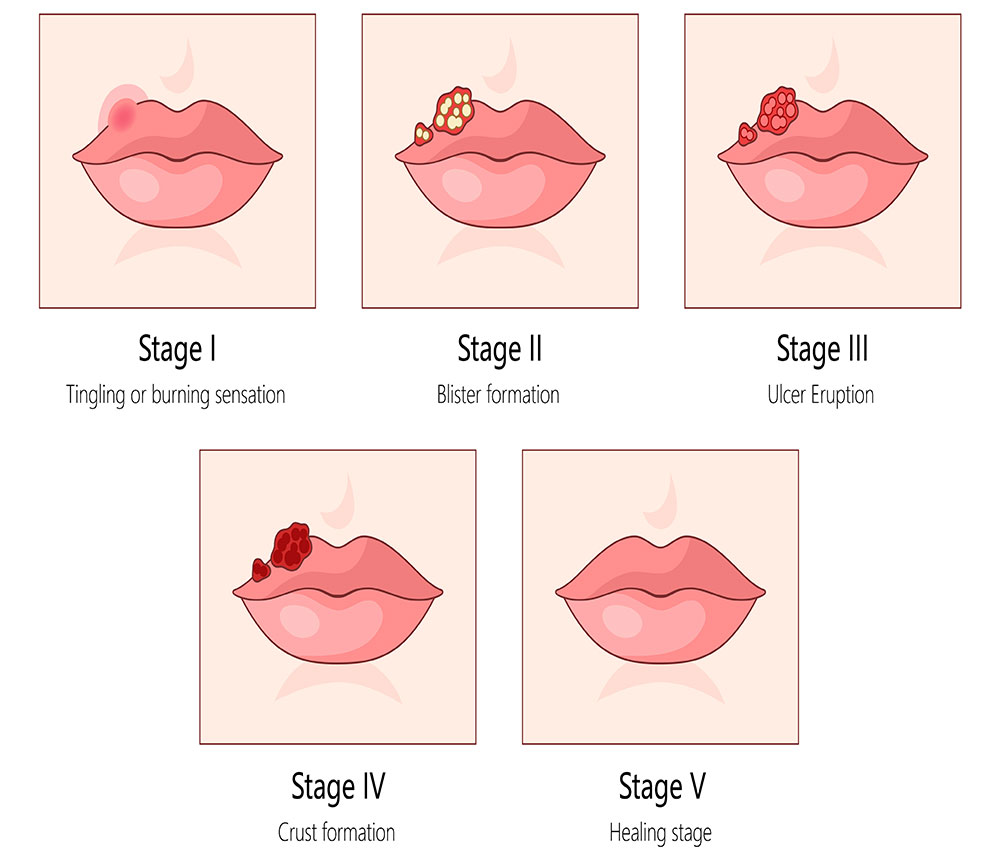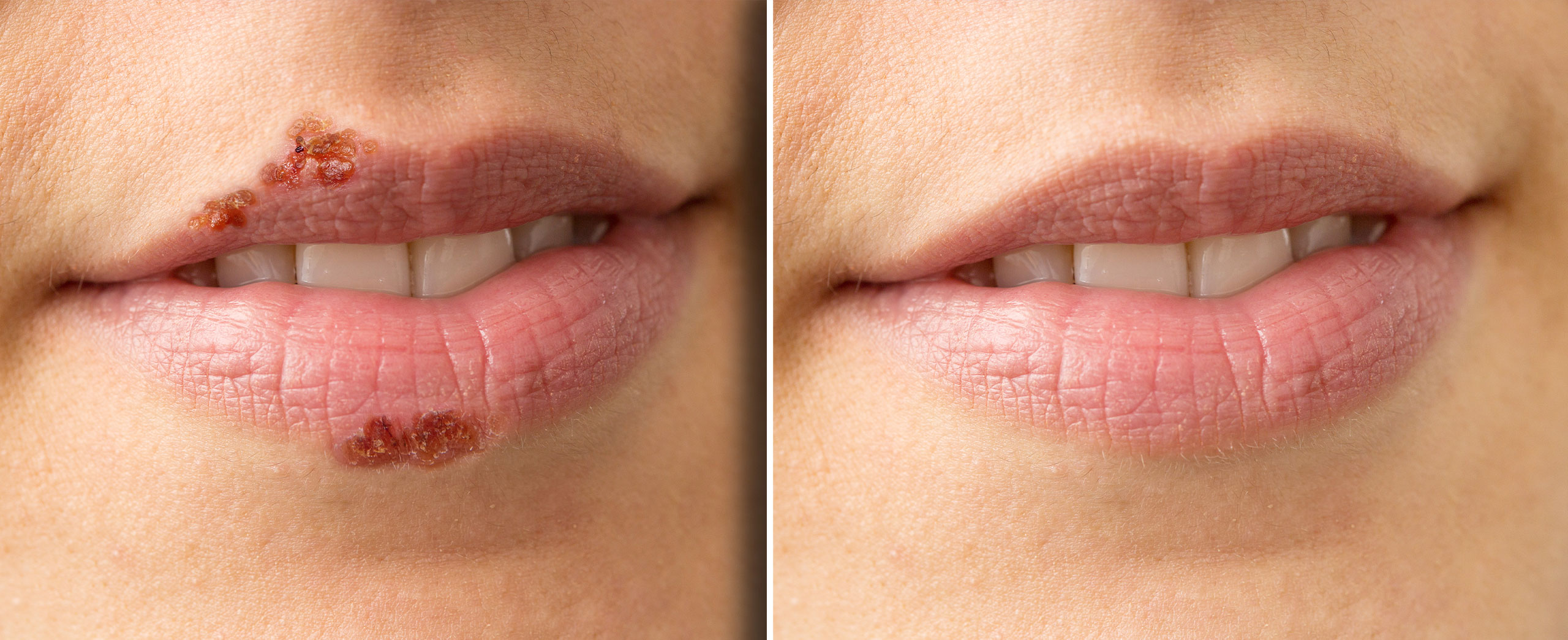Cold Sores
Cold sores are small grouped blisters that appear on the lip or around the mouth. If you get these bothersome sores, you are not alone. It is estimated that over half of Americans between the ages of 14 and 49 carry the virus that causes cold sores.
The virus that causes cold sores, herpes simplex virus, stays in your body even after a cold sore heals. Some people just have one cold sore in their life, but most will experience recurrent episodes. You may notice your cold sores return (the virus reactivates) in certain situations such as:
- Times of stress, or feeling ‘run down’
- When you are fighting a cold or other illness
- Sun exposure
- Hormonal changes, such as during menstruation or pregnancy
- Trauma, such as shaving, cuts, dental work, or facial or cosmetic surgery
Stages of a Cold Sore

Do I need to see a doctor for my cold sores?
Cold sores will heal even without treatment over the course of 1 to 2 weeks. However, medical treatment with prescription oral antiviral medications (such as Valtrex, Famvir) can shorten this healing time. Treatment can also reduce the chances of spreading the virus to other people, and even help prevent future recurrences.
In addition to antiviral pills, there are also prescription topical creams, which can reduce the discomfort of a cold sore, and possibly speed clearance.
An active cold sore (one that has not yet crusted over or healed) is highly contagious. If you have a cold sore, you should avoid intimate contact – such as kissing – and sharing cups, towels, razors, toothbrushes and any other objects that may have come in contact with your cold sores. This will help prevent the cold sores from spreading to another person.
Is there anything I can do while I wait for my cold sore to heal?
The American Academy of Dermatology has some excellent advice that our patients have found to be helpful:
- Slow the outbreak: Burning, itching or tingling may be the first sign that a cold sore is coming. When cold sores appear, apply an over-the-counter antiviral cream or ointment. Although this isn’t always effective, doing this may help slow the reproduction of the virus and relieve symptoms.
- Reduce pain: Consider taking ibuprofen or acetaminophen to help reduce pain.
- Avoid foods that contain acid: While you have a cold sore, avoid foods that contain acid, such as tomatoes and citrus fruits. These could irritate the skin and add to any pain.
- Cool the sores: Place a cool, wet towel on the cold sores for about 5 to 10 minutes. Do this a few times daily to help reduce the redness and irritation.
Read more about the causes of cold sores and the best treatment options in CT


